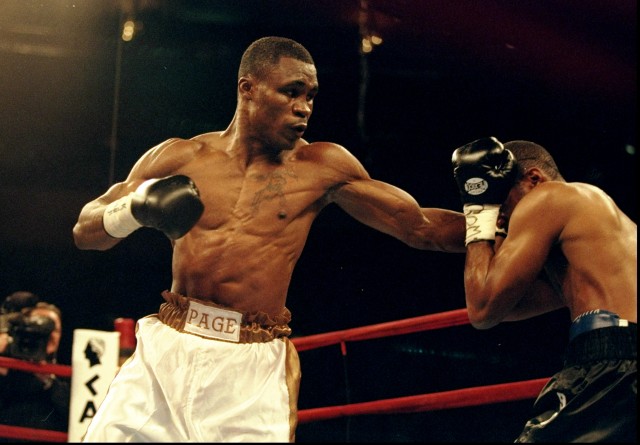
Starting in the mid-1990s, James "The Mighty Quinn" Page fought near or at the top of the professional boxing world's welterweight division. He "hit like a mule," according to one assessment of his career. He was rated highly for his stamina and ability to take a punch.
But Page, who grew up in what his most recent lawyer describes as a violent and drug-ridden household in Pittsburg, is arguably better known now for how he spent his time outside the ring. As Page began to find success in the ring, he also started amassing what became a long criminal rap sheet, including felony drug possession, drug trafficking, robbery, and theft, in addition to a long list of misdemeanor convictions.
After he lost his title once and for all in 2001, he committed several unarmed bank robberies in Georgia. He was sentenced to 11 years in federal prison, got out in 2012 and, at the age of 41, returned to the East Bay. He later told a neuropsychologist retained to examine him that when he came home "he had no idea how to earn a living. He could not get a job. He did try one fight. ..."
That bout was part of a card in Sacramento in November 2012. Here's how Boxing.com describes the proceedings:
James Page made his short-lived comeback in November 2012 against ultra-limited Rahman Mustafa “Genghis Khan” Yusubov, a native of Azerbaijan. After a decent first round, Page lost by second round KO via a left hook-right cross combo that put him away. This was Genghis’s only win in his last ten bouts. Fortunately, Page wasn’t seriously injured in the bout—one that arguably should never have been sanctioned.

The aftermath? Page unsuccessfully tried to find work as a trainer. Then, a few months later, still under supervised release from his earlier conviction, he launched another series of unarmed bank robberies. His modus operandi was to hand tellers a note demanding cash, and since he wore collared shirts in an apparent attempt to conceal a tattoo on his neck, he was called the Button-Down Bandit. Between early March and mid-June of last year, Page hit eight banks and netted a total of about $17,000. He pleaded guilty to six of the heists, and Tuesday he was sentenced to seven years and three months in federal prison.
